
On May 20th, the world comes together to celebrate World Bee Day, a day designated by the UN to raise awareness about the importance of pollinators and the threats they face.
The significance of bees and other pollinators cannot be overstated, as they play a crucial role in maintaining the health of our ecosystems and ensuring food security. The date was chosen to honor Anton Janša, a pioneer of modern beekeeping, highlighting the historical significance of beekeeping traditions.
This celebration is closely linked to multiple UN Sustainable Development Goals, particularly those focused on ending hunger, protecting biodiversity, and promoting sustainable development.
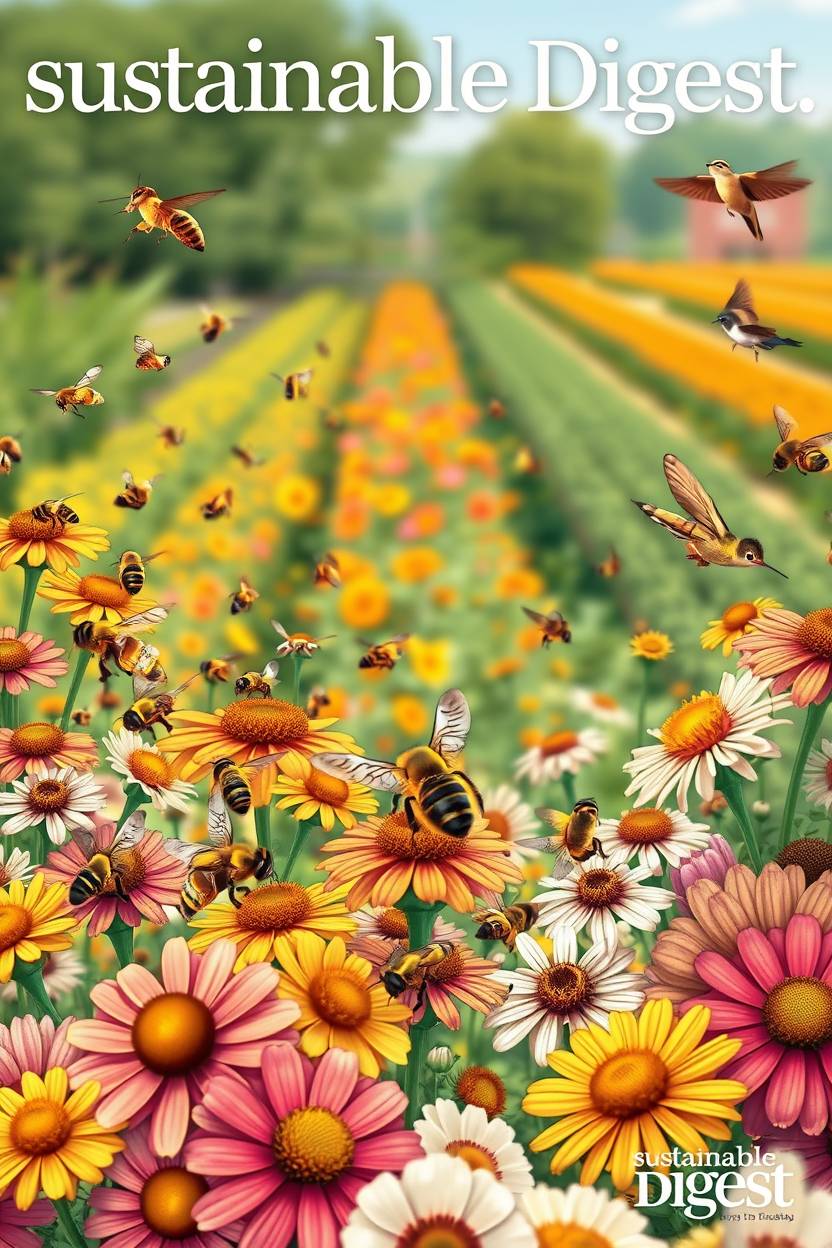
The Significance of World Bee Day
As we mark World Bee Day, we are reminded of the critical importance of bees and other pollinators in our food systems. The day serves as a global initiative to educate people about the significance of these tiny creatures and the crucial role they play in maintaining ecological balance.
Origins and History of World Bee Day
World Bee Day has its roots in the global recognition of the importance of bees and other pollinators. The day was established to highlight the critical role these creatures play in our ecosystem and to raise awareness about the challenges they face. The first World Bee Day was celebrated on May 20, 2018, and since then, it has become an annual event.
The 2025 Theme: “Bee Inspired by Nature to Nourish Us All”
The 2025 theme for World Bee Day is “Bee Inspired by Nature to Nourish Us All“. This theme highlights the critical roles bees and other pollinators play in agrifood systems and the health of our planet’s ecosystems. The theme emphasizes the intrinsic connection between natural pollination systems and global food security.
The key aspects of the 2025 theme are:
| Theme Aspect | Description | Impact |
|---|---|---|
| Bee Inspired by Nature | Encouraging humans to look to nature’s wisdom for sustainable solutions | Innovative thinking about protecting pollinators |
| Nourish Us All | Highlighting the universal dependence on pollinators across cultures and regions | Underscoring the importance of pollinators for global food security |
| Call to Action | Implementing nature-based solutions in agriculture and conservation efforts | Protecting pollinators and promoting sustainable practices |
The 2025 theme serves as a call to action for individuals, communities, and governments to work together to protect pollinators and promote sustainable practices. By highlighting the importance of pollinators, we can inspire collective action to address the challenges facing these critical creatures.
Understanding the Critical Role of Pollinators

The importance of pollinators cannot be overstated, as they are fundamental to both food security and ecosystem health. Pollinators are essential for the reproduction of many plant species, and their role in maintaining the balance of ecosystems is multifaceted.
Bees and other pollinators also serve as indicators of environmental health, providing insights into ecosystems and the climate. By facilitating plant reproduction, they help maintain habitat structure and food sources for countless other species, creating a cascade of ecological benefits.
Bees as Essential Contributors to Food Security
Bees are among the most important bees pollinators, contributing significantly to food security. Many crops rely on bees and other pollinators for reproduction, and without them, global food production would be severely impacted. Protecting pollinators is crucial for ensuring the long-term sustainability of our food systems.
The conservation of pollinator habitats is also essential for maintaining the health of these critical ecosystems. By supporting pollinator-friendly practices, we can help ensure that these vital services continue to thrive.
Biodiversity and Ecosystem Services Provided by Pollinators
Pollinators contribute to a wide range of ecosystem services beyond food production, including soil fertility, pest control, and air and water regulation. These services are essential for maintaining healthy ecosystems and supporting biodiversity.
The benefits of pollinators are far-reaching, and ecosystem services provided by these species are invaluable. The following table highlights some of the key ecosystem services provided by pollinators:
| Ecosystem Service | Description | Benefit |
|---|---|---|
| Soil Fertility | Pollinators contribute to the reproduction of plants that improve soil health | Improved crop yields and reduced soil erosion |
| Pest Control | Pollinators support the presence of beneficial insects that control pests | Reduced use of pesticides and improved crop health |
| Air and Water Regulation | Pollinators help maintain ecosystem balance, supporting clean air and water | Improved environmental health and reduced pollution |
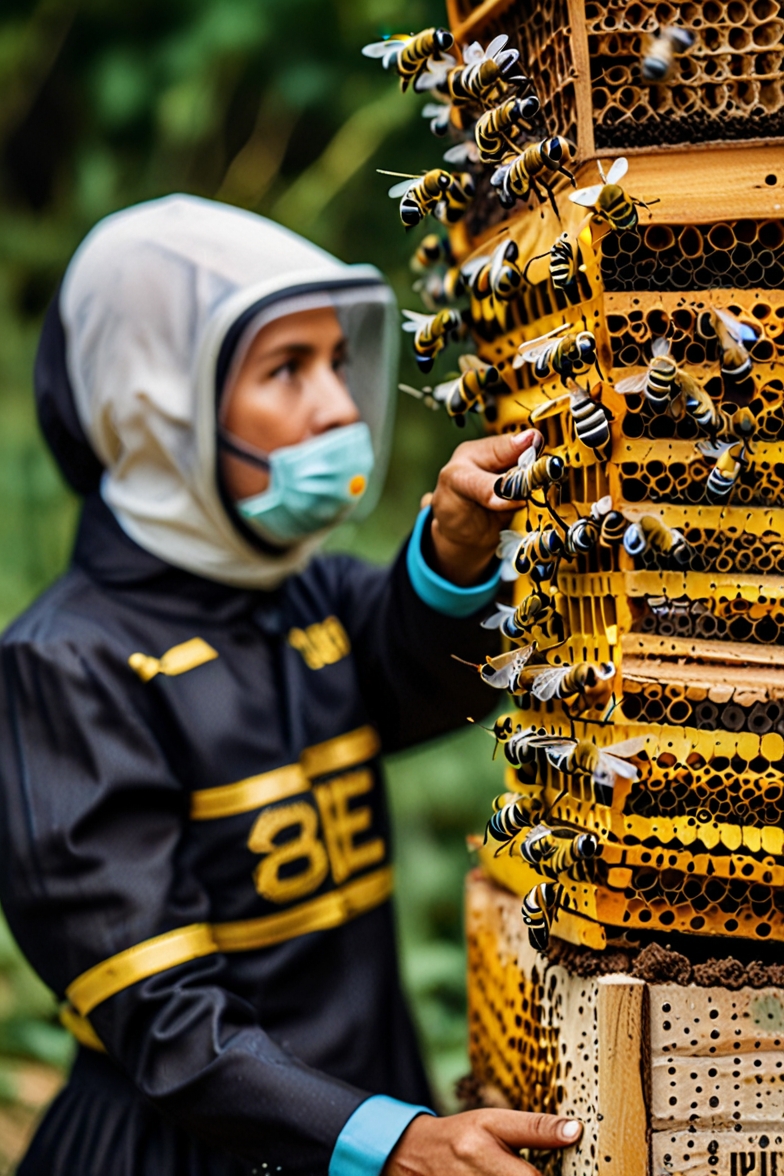
World Bee Day and the UN Sustainable Development Goals
World Bee Day serves as a poignant reminder of the critical role pollinators play in achieving several of the UN’s Sustainable Development Goals. The significance of this day extends beyond celebrating bees; it’s about recognizing the integral role these pollinators play in advancing the SDGs, particularly those related to food security, biodiversity, and climate action.

SDG2: Zero Hunger and Pollinator Protection
Pollinators are crucial for global food security, contributing to the production of many crops that are vital for human nutrition. The loss of pollinators due to intensive farming practices, pesticide use, and climate change poses a significant threat to achieving Zero Hunger, as emphasized in SDG2. Protecting pollinators is, therefore, essential for ensuring food availability and nutritional quality.
Efforts to conserve pollinators include promoting sustainable agricultural practices that reduce the use of harmful pesticides and preserve natural habitats. By supporting such practices, we can help safeguard pollinator populations and contribute to achieving SDG2.
SDG15: Life on Land and Biodiversity Conservation
The conservation of biodiversity, as outlined in SDG15, is closely linked to pollinator health. Pollinators rely on diverse ecosystems for their survival, and in turn, they contribute to the reproduction of many plant species. The loss of biodiversity can have cascading effects on ecosystems, reducing their resilience and functionality.
Protecting and restoring natural habitats is crucial for maintaining pollinator populations. This involves conserving ecosystems like forests, grasslands, and wetlands, which provide the necessary resources for pollinators to thrive.
SDG13: Climate Action and Bee Preservation
Climate change represents one of the most significant threats to pollinator populations worldwide. Rising temperatures and altered precipitation patterns can disrupt the delicate synchronization between flowering plants and pollinator activity, impacting both pollinator survival and plant reproduction.
Addressing climate change through SDG13 is, therefore, critical for pollinator conservation. This involves reducing greenhouse gas emissions and adopting climate-resilient agricultural practices that support pollinator health. By mitigating the impacts of climate change, we can help protect pollinators and the ecosystems they inhabit.

Global Threats to Bee Populations
The world’s bee populations are facing unprecedented threats that jeopardize global food security and ecosystem health. Bees, as vital pollinators, are crucial for maintaining biodiversity and ensuring the reproduction of many plant species.
Habitat Loss and Agricultural Practices
Intensive agricultural practices and land-use changes have led to habitat loss and fragmentation, significantly impacting bee populations. Mono-cropping, in particular, reduces the diversity of flora, limiting the availability of food resources for bees.
The expansion of agricultural land has resulted in the destruction of natural habitats, further exacerbating the decline of bee populations. To mitigate this, sustainable agricultural practices that promote biodiversity are essential.
Climate Change Impacts on Pollinators
Climate change poses a significant threat to bees and other pollinators. Rising temperatures and altered precipitation patterns disrupt the delicate timing of plant-bee interactions, making it challenging for bees to adapt.
Changes in temperature and precipitation patterns can also affect the quality and quantity of nectar and pollen, essential resources for bees. This can have cascading effects on bee health and population stability.
Pesticides and Chemical Pollution
The use of pesticides, particularly neonicotinoid insecticides, has been linked to bee declines. These chemicals can impair bee navigation, learning, and reproduction, even at sublethal doses.
| Threat | Impact on Bees | Potential Solution |
|---|---|---|
| Pesticides | Impaired navigation, learning, and reproduction | Integrated pest management practices |
| Habitat Loss | Reduced food resources and nesting sites | Sustainable agricultural practices and habitat restoration |
| Climate Change | Disrupted plant-bee interactions and resource availability | Climate-resilient agriculture and conservation efforts |
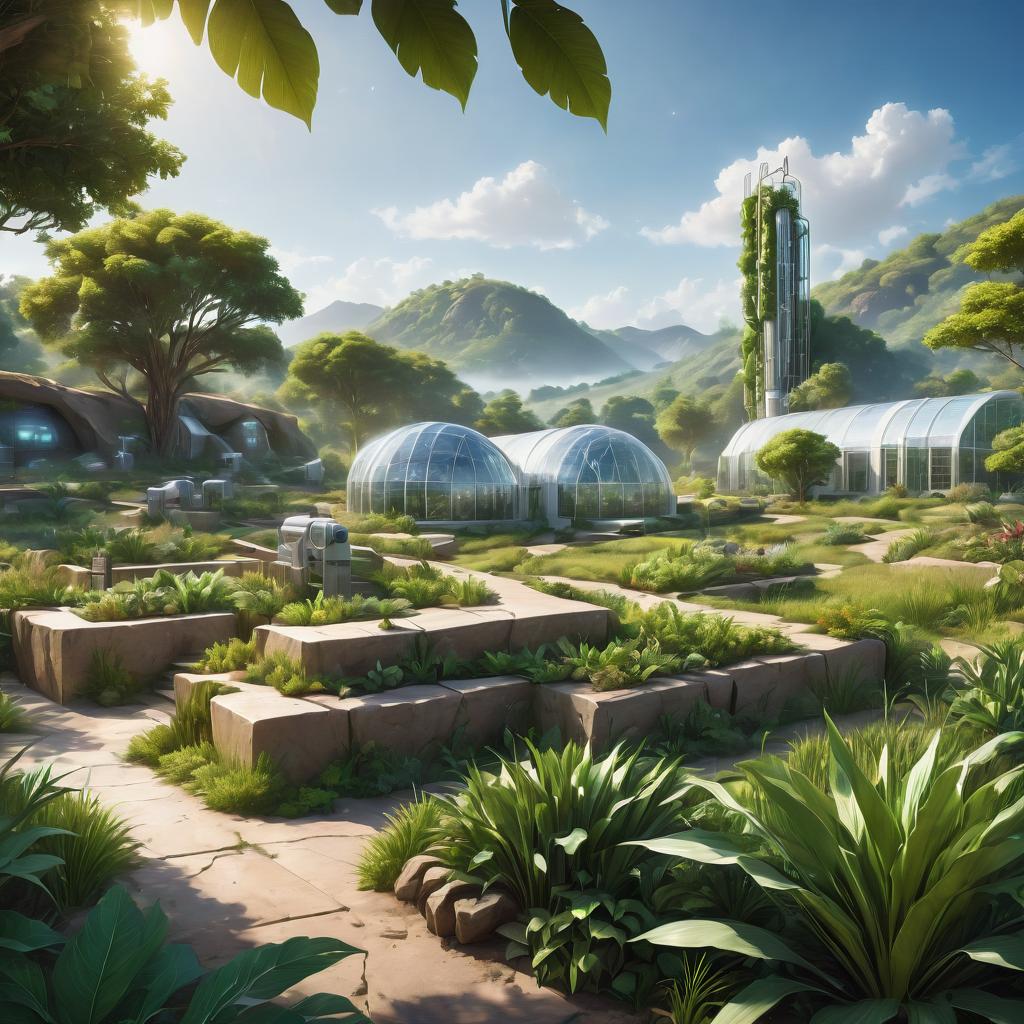
The impact of pesticides on bees is further complicated by the “cocktail effect,” where exposure to multiple chemicals can have synergistic impacts. This highlights the need for comprehensive risk assessments and regulations to protect bees and other pollinators.
Taking Action: How to Support World Bee Day Initiatives

Supporting World Bee Day initiatives is a collective responsibility that requires action at multiple levels. Individual actions, community efforts, and policy changes are all crucial for the conservation of pollinators. By working together, we can make a significant impact on the health of our ecosystems and food systems.
Individual Actions to Protect Pollinators
Individuals can make a difference by adopting pollinator-friendly practices. This includes planting a diverse range of flowers that provide nectar and pollen, reducing or eliminating the use of pesticides, and supporting local beekeepers. Every small action counts, and collective individual efforts can lead to significant positive change. For example, planting a single bee-friendly garden can provide a vital source of food for pollinators.
Community and Agricultural Approaches
Communities and agricultural sectors can also play a significant role in supporting pollinators. This can be achieved through the implementation of sustainable agricultural practices, such as crop rotation and the use of pollinator-friendly crops. Community-led initiatives, such as bee conservation programs and educational workshops, can also raise awareness and promote action. By working together, communities can create pollinator-friendly habitats and reduce the impact of agriculture on pollinator populations.
Policy and Governance Solutions
Effective policy and governance are critical for creating systemic change in pollinator conservation. This includes implementing policy frameworks that restrict harmful pesticides, incentivize pollinator-friendly farming, and protect critical habitats. International cooperation and the incorporation of indigenous knowledge into conservation strategies are also essential. By supporting policies that promote pollinator conservation, we can create a more sustainable future for both pollinators and human communities. The Convention on Biological Diversity is an example of an international agreement that provides a mechanism for coordinated action on pollinator protection.
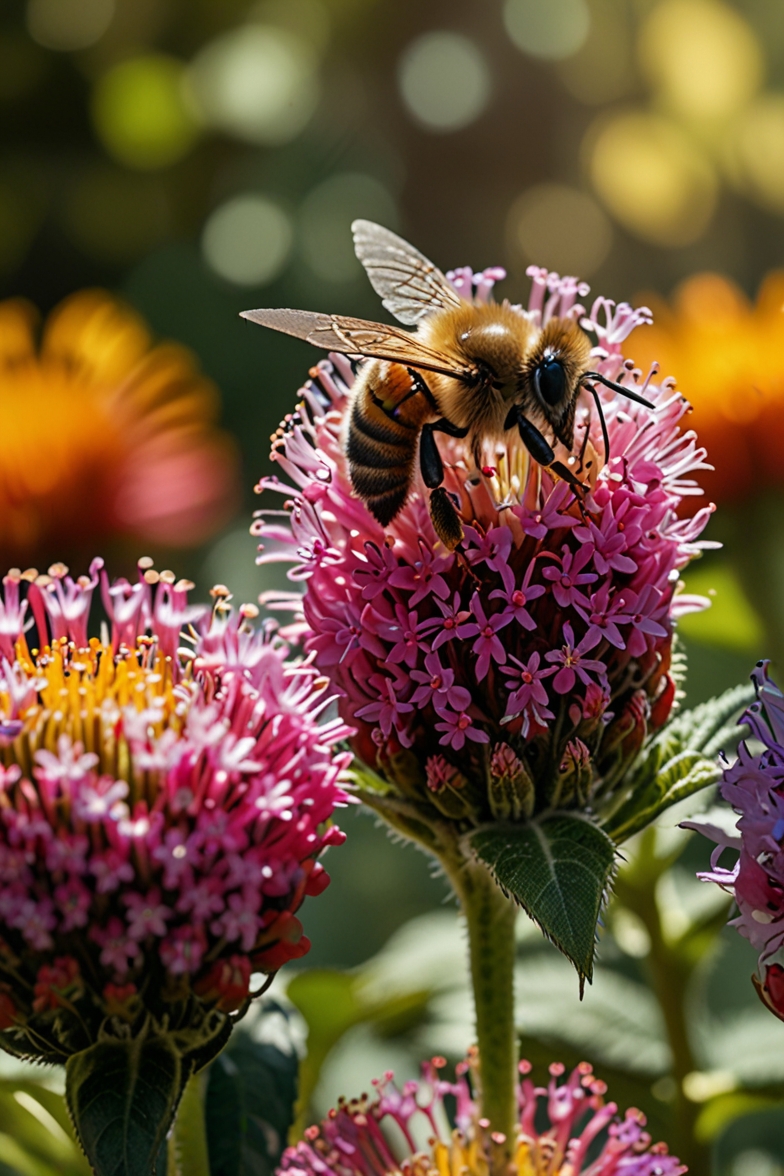
Conclusion
As we celebrate World Bee Day, it’s clear that the fate of pollinators is intricately linked with our own. The theme ‘Bee inspired by nature to nourish us all’ highlights the critical roles bees and other pollinators play in agrifood systems and the health of our planet’s ecosystems.
Pollinators are increasingly threatened by habitat loss, unsustainable agricultural practices, climate change, and pollution. Their decline jeopardizes food production, increases costs, and exacerbates food insecurity, particularly for rural communities.
World Bee Day represents a powerful opportunity to transform awareness into action for protecting the pollinators that sustain our food systems and natural ecosystems. By taking inspiration from nature’s wisdom, we can develop more harmonious and sustainable relationships with our environment. The future of bees and other pollinators depends on collective action at all levels, creating a shared responsibility that we all must embrace.

FAQ
What is the significance of pollinators in maintaining ecosystem health?
Pollinators, such as bees, play a crucial role in maintaining ecosystem health by facilitating the reproduction of plants, which in turn supports biodiversity and ecosystem services, including air and water regulation, and soil fertility.
How do agricultural practices impact pollinator populations?
Agricultural practices, such as the use of pesticides and monoculture farming, can harm pollinator populations by reducing the diversity of plants available for foraging and habitat destruction, ultimately affecting crop yields and food security.
What can individuals do to support pollinator conservation on World Bee Day?
Individuals can support pollinator conservation by planting bee-friendly plants, reducing pesticide use, and supporting local beekeepers, which can help protect pollinator populations and promote biodiversity.
How does climate change affect pollinators?
Climate change affects pollinators by altering the timing of plant-pollinator interactions, reducing the availability of food resources, and changing the distribution of pollinator species, which can have cascading effects on ecosystem health.
What is the connection between pollinators and the UN’s SDGs?
Pollinators are closely linked to several of the UN’s SDGs, including SDG 2: Zero Hunger, SDG 13: Climate Action, and SDG 15: Life on Land, as they play a critical role in maintaining food security, mitigating climate change, and conserving biodiversity.
How can community-based initiatives support pollinator conservation?
Community-based initiatives, such as community gardens and pollinator-friendly habitats, can support pollinator conservation by promoting biodiversity, reducing pesticide use, and raising awareness about the importance of pollinators.
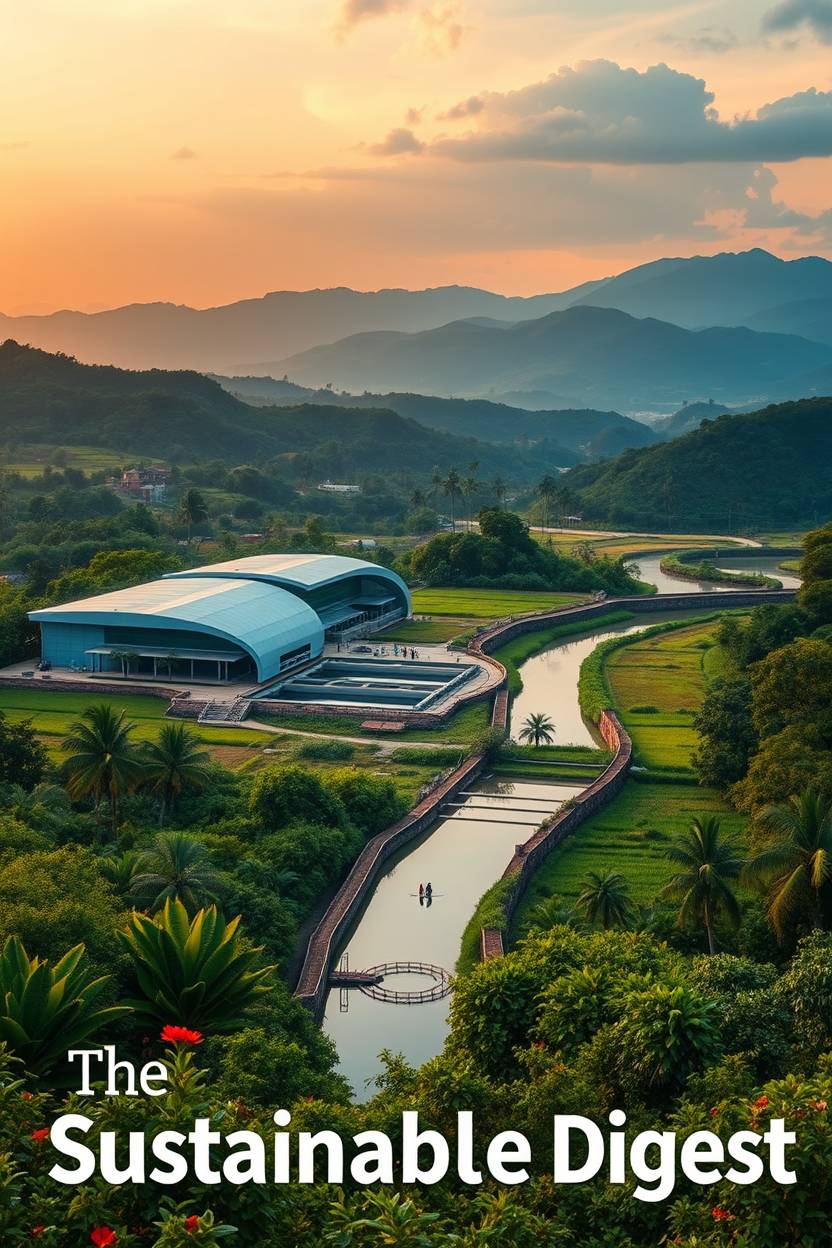
Key Takeaways
- The importance of pollinators to our planet’s ecosystems and food security.
- The historical significance of beekeeping traditions and Anton Janša’s contribution.
- The connection between World Bee Day and the UN’s Sustainable Development Goals.
- The need for collective action to protect pollinators and halt biodiversity loss.
- The role of individuals, communities, and governments in ensuring a sustainable future.
